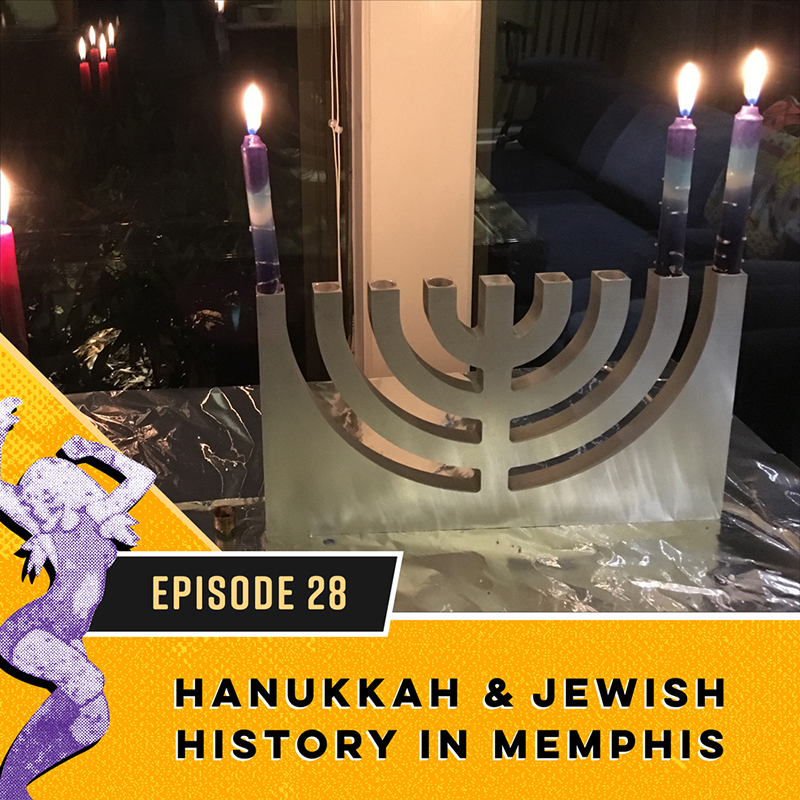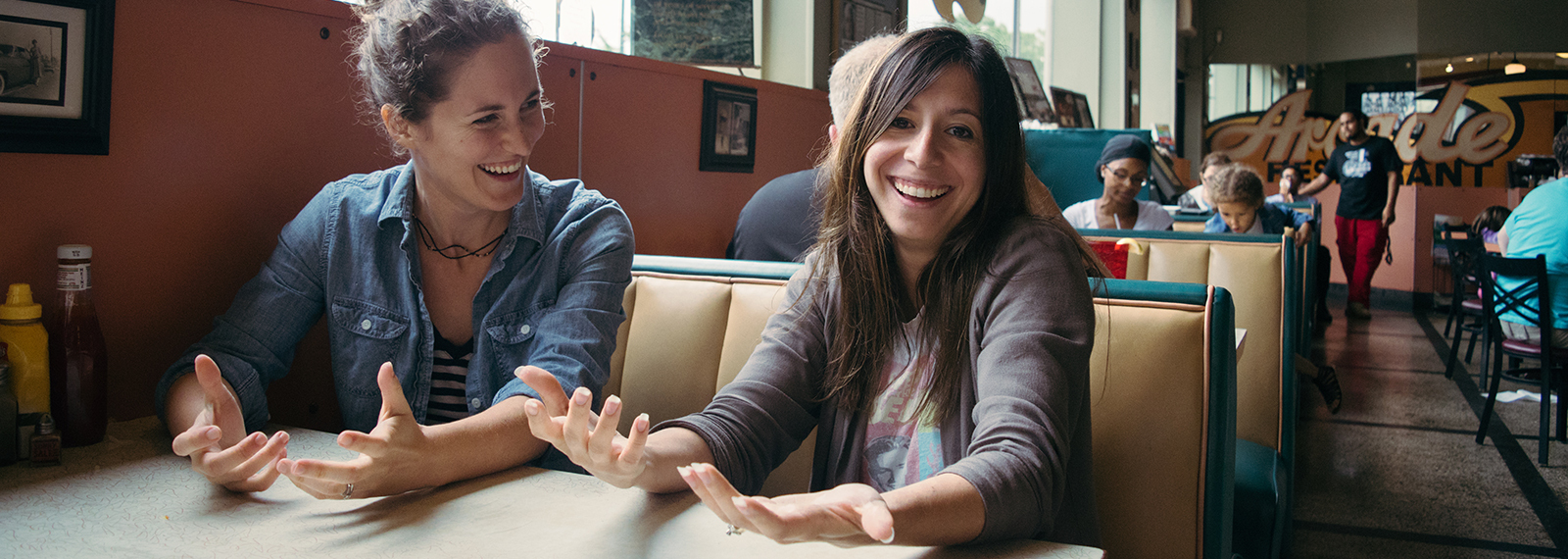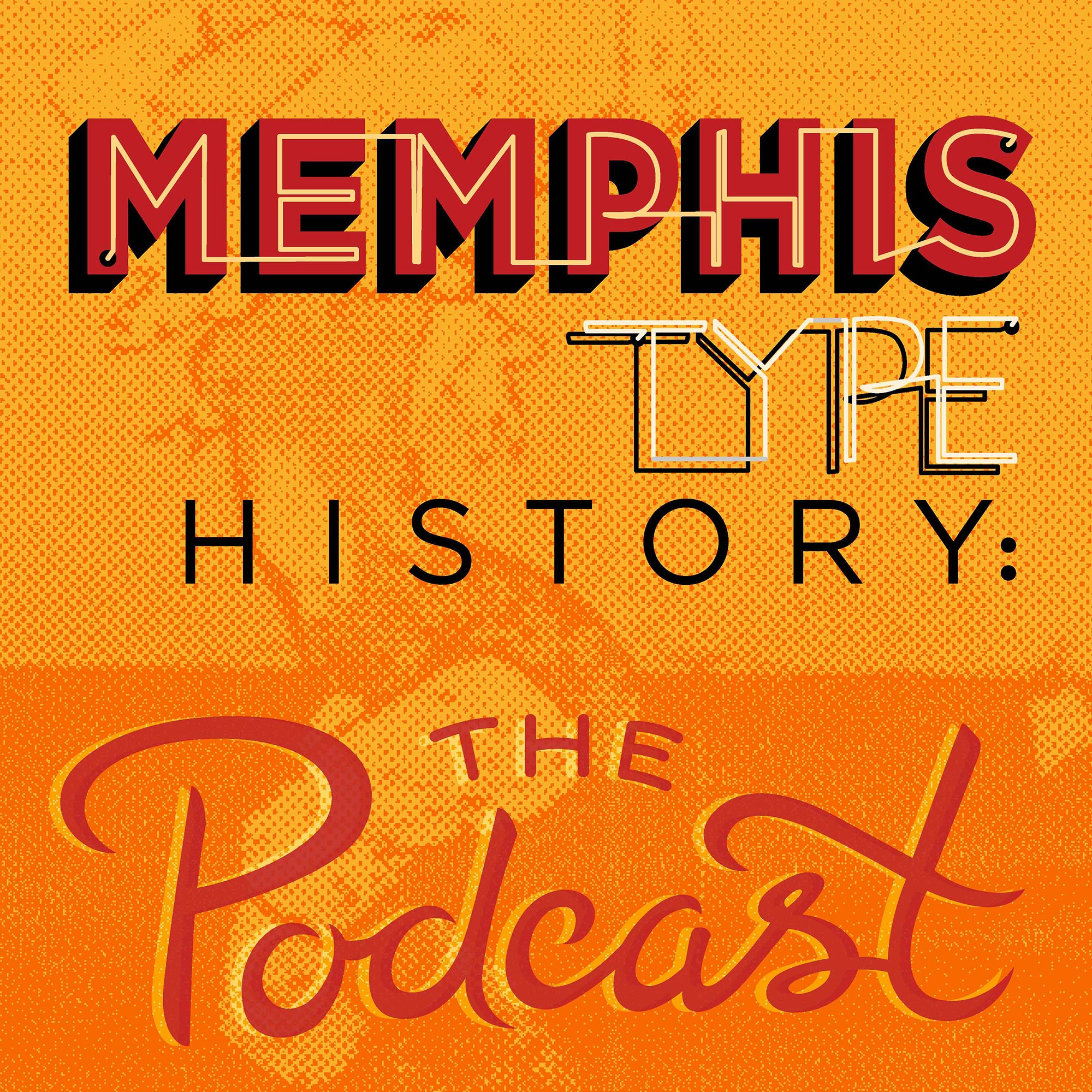Episodes

Sunday Dec 10, 2017
Hanukkah and Jewish History in Memphis
Sunday Dec 10, 2017
Sunday Dec 10, 2017
In this episode of Memphis Type History: The Podcast, Rebecca speaks with Lynnie Mirvis, a member of the Jewish Historical Society of Memphis and the Mid-South, to tell us about the meaning of Hanukkah. And while the intent was to learn all about the festival of lights and its history, we end up diving more into the history of Judaism and what the Jewish community looked like in Memphis throughout.
Learning about Lynnie
Lynnie, a Memphis native takes us back to her days going to a Jewish day school and let's us in on what a Bar Mitzvah is.. something Rebecca always wanted to be invited to. It's the age when a boy or girl enters true responsibility to the Jewish Culture. They are celebrated differently depending on what denomination. There is some difference in when that happens, though.
Reformed? Conservative? Orthodox?
She also spent some time explaining some of the finer points of Judaism. Whether Orthodox, Reformed, Conservative etc... to be Jewish is to be part of the Jewish people. It is a faith community. Before the 18th century there were no different forms of being Jewish. It was during the enlightenment age that reformation took place. We don't dive into the differences in much detail but we do learn there were different movements and we can find these different denominations in Memphis. This is where it starts to get really interesting for all you Memphis history buffs. You'll even find out what famous architect designed one of the orthodox synagogues here.
It all started in the Pinch
The Jewish community in Memphis started in the Pinch District downtown in the 1850's. Then moved in several different locations. First, to Washington and Fourth, then, North Parkway, and now in East Memphis. At one time, the site where Mississippi Boulevard Christian Church sits now was once a temple. You can even still see the golden dome if you look closely while driving down Poplar. It should be noted there are different synagogues for the different denominations in different locations.
One of the historical highlights was the beginning of the Jewish community center which is now occupied by another well-known facility. The Jewish Community Center started to give Jewish young people of all different denominations one place where they could come together to do various activities. There were swimming pools, basketball courts, dance classes, theatre, and various other community classes and meetings. You may now recognize this as the newly purchased annex building on the north side of the Turner Dairy. Today, the Jewish community center is in East Memphis near the synagogues.
Hanukkah is Here!
We also got spend some time talking about the imagery and stories of the tradition of Hanukkah. Lynnie told that it's actually not one of the biggest holidays on the Jewish calendar, but has become a special time in the U.S. One of the reasons: the lighting of the menorah has become such a beautiful symbol of the holiday season. You'll have to listen to get the full story and Lynnie's explanation of how the story is a metaphor including an Alexander the Great connection. There's also a really interesting story about one moment in history in which the Jewish people were demanded of another leader to give up their lights. You can listen to it all in this podcast episode.
To Be Jewish, Is to Be Thankful
Lynnie explained how at it's semantic root, the word "Jewish" actually means "Thankful". She talks about the origins of the word and, of course, another beautiful story to tie it all together. She even tells me about the thankful prayer that many Jewish people around the world start their day by reciting.
Her family came to Memphis from Poland to find a better life and likely to escape persecution. They started a store and an auto parts shop in 1941. On the other side of the family, they arrived from German in the late 1800's. That side of the family actually started the Jewish newspaper and print shop. It was located at a pretty well-known location right next to the Rendezvous. That building, unfortunately, is no longer standing.
Another location for her family's auto parts shop, Katz Brothers, used to occupy was the corner of Florence right by Overton Square. You can find the Magnolia Room, an event space, there now. They even lived above the shop there for many years. Some of her family members that escaped the holocaust came to this house as a place of refuge and then stayed in Memphis.
Being Jewish in Vollentine-Evergreen
Much of her childhood happened near the Orthodox Synagogue location not far from her house near the intersection of Hawthorne and Vollentine. You'll find a church there now in a building and land the occupy an entire city block. It almost looks like an old utility building or something like that. But in the 50s and 60s it was the orthodox shoal (another word for synagogue). She recalls growing up in the turbulent time of the civil rights movement and her holocaust-surviving cousins being appalled at some of the things that existed in Memphis at the time—segregation in department stores and in public places. She also talks about the what she was doing the moment she found out Dr. King had been assassinated. But maybe the most intriguing part of it is her talking about how her Jewish experience gave her a different perspective on the events of that time. You guessed it... you'll have to listen to hear, though.
The Jewish Historical Society of the Mid-South
Lynnie talked about being a member of the Jewish Society of the Mid-South which exists to preserve the stories of the jewish people in the region. She has been a members since the organization's founding in the 1980s. The collection they preserve is physically located at Temple Israel in East Memphis. They are especially interested in noting and keeping record of landmarks and buildings that have connections to the Jewish stories of Memphis.
Her Elvis Story
It turns out that Elvis' dentist was Jewish, his taylor was Jewish, and best of all, when Elvis was living in Lauderdale Courts, his neighbor was the head of a Jewish school. Apparently, the school leader would leave his record player on on sabbath to avoid breaking tradition. It is said, that the music Elvis heard had an impact on him. Details in the podcast including the strongest Jewish connection of all.


No comments yet. Be the first to say something!